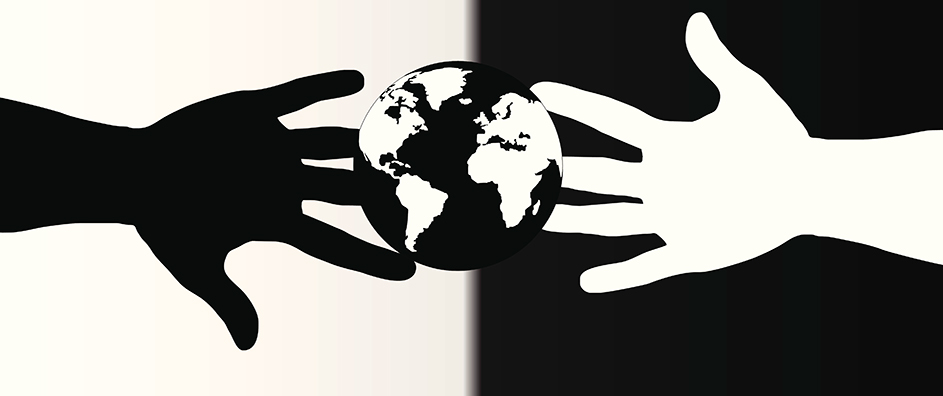In the intricate tapestry of human interaction, the specter of prejudice looms large, often weaving misunderstandings and malice among diverse cultures. The Baha’i teachings provide a profound framework for elucidating the mechanisms of prejudice while imparting the wisdom necessary to transcend its confines. This guide elucidates the Baha’i perspectives on moving past these barriers, offering pathways for individuals to cultivate an inclusive and harmonious society.
Understanding Prejudice
Prejudice, in its essence, is predicated upon preconceived notions about people based on superficial characteristics such as race, gender, or socio-economic status. Psychologically, it manifests as a defensive mechanism against perceived threats, fostering an “us versus them” mentality. Baha’i teachings urge the examination of these biases, advocating a deeper inquiry into their origins and an understanding of their disruptive impact on social cohesion.
At its core, prejudice is a reflection of ignorance—a lack of understanding that breeds fear and animosity. As Baha’is believe that humanity is one, prejudicial attitudes stand in stark contrast to the principles of unity and equality espoused by the Faith. The Baha’i writings emphasize the necessity of acknowledging the oneness of mankind and the imperative of dispelling ignorance through education and dialogue.
Dialogue and Consultation
Dialogue, as a tool for reconciliation, plays a vital role in addressing prejudices. The Baha’i approach emphasizes the importance of meaningful conversation that transcends mere rhetoric. Engaging in consultations that prioritize collective problem-solving fosters an environment of respect and empathy. Such exchanges allow individuals to share their experiences, elucidate their perspectives, and cultivate mutual understanding. To facilitate this, Baha’is recommend creating safe spaces where all voices can be heard, thus dismantling barriers that perpetuate animosities.
Empathy emerges as a cornerstone of this dialogue. By placing oneself in another’s circumstances, individuals can develop a nuanced comprehension of the challenges faced by others. This empathetic engagement highlights the shared human experience, transforming prejudicial perceptions into opportunities for connection. The Baha’i community actively promotes initiatives emphasizing the power of stories to bridge divides, inviting individuals to narrate their journeys and in so doing, reveal the commonality of human aspirations.
Education as a Catalyst for Change
In alignment with the belief that ignorance fuels prejudice, education is heralded as a powerful antidote. The Baha’i writings advocate a progressive, comprehensive education that includes ethical and moral dimensions, aiming to cultivate virtues that counteract biases. Educational institutions functioning within the Baha’i framework strive not only to impart academic knowledge but also to develop the character of individuals, instilling values of tolerance, understanding, and service to humanity.
Innovative programs in the Baha’i community aim to equip individuals with tools to navigate the complexities of social identities. These programs encourage critical thinking and ethical reasoning, essential skills for discerning the multifaceted nature of prejudice. By fostering a curriculum that champions diversity and inclusivity, Baha’is maintain that society can gradually illuminate the pathways toward mutual respect and understanding.
Personal Reflection and Transformation
The journey of moving past prejudice is intrinsically personal, necessitating deep introspection. Baha’i teachings advocate for self-assessment, encouraging individuals to confront their biases and actively strive for transformation. Personal growth often entails recognizing one’s own prejudiced inclinations, acknowledging feelings of superiority or entitlement, and seeking to reform these attitudes through conscious effort.
Spiritual reflection plays a pivotal role in this transformation. Through prayer and meditation, individuals can cultivate inner peace and strengthen their commitment to the principles of love and unity. Baha’is are encouraged to develop virtues such as humility and kindness, which serve as antitheses to prejudice. When these qualities permeate the soul, they engender a disposition of acceptance and understanding, facilitating the dismantling of ingrained biases.
Community Engagement and Service
The Baha’i community underscores the significance of collective action as a vital component of combating prejudice. Service-oriented projects not only address societal needs but also foster inter-group cooperation, creating rich opportunities for mutual understanding. By engaging in acts of service together, individuals from varied backgrounds can bond over shared goals, culminating in a tighter bond that obliterates divisions.
Furthermore, community development initiatives that are inclusive in nature echo the Baha’i ethos of oneness. By inviting all individuals to participate—regardless of their background—these initiatives promote an atmosphere where differences are celebrated rather than feared. Such collaborative efforts can unveil the richness embedded in diversity, showcasing the beauty of human interconnectedness.
The Role of Spiritual Teachings
Central to Baha’i beliefs is the notion that divine teachings can illuminate the path towards overcoming prejudice. The teachings of Baha’u’llah promote universal principles of justice, love, and unity. These principles resonate deeply with the struggle against prejudice, serving as guiding lights for individuals seeking to align their lives with the ideals of oneness.
Moreover, the Baha’i concept of the “noble spirit” reinforces the idea that all humankind is imbued with inherent dignity. Recognizing this intrinsic value in every individual fosters a culture of respect, undermining the foundations of prejudice. Ultimately, embracing these spiritual teachings cultivates a profound sense of responsibility among individuals to champion justice and harmony.
Conclusion
Moving past our prejudices is both a personal and collective journey, deeply intertwined with the Baha’i commitment to the oneness of humanity. Through dialogue, education, personal reflection, community engagement, and spiritual growth, individuals can dismantle the barriers that prejudice creates. As the Baha’i teachings illuminate the path toward acceptance and mutual respect, they inspire hope for a harmonious future, where the rich tapestry of human identity is celebrated rather than restricted by preconceived notions. In this journey, every effort counts, as each step taken towards understanding and compassion contributes to the overarching goal of global unity.
